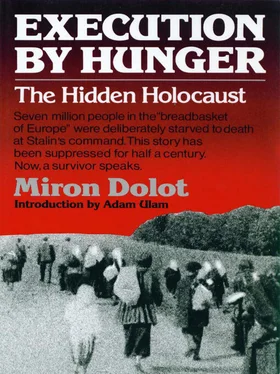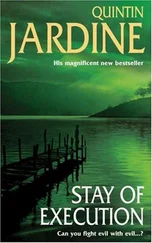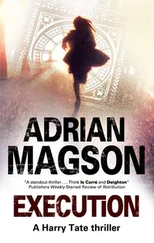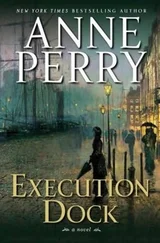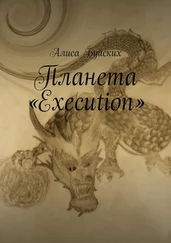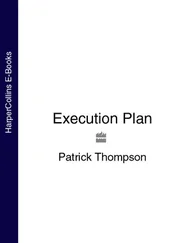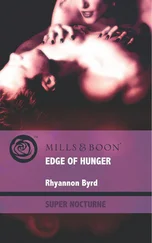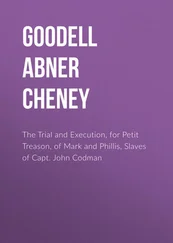The next Saturday, the last Saturday in February, less than a week after the departure of the Propaganda Brigade, more strangers arrived in our village. These were GPU men, a small detachment of security troops, and many militiamen. Patrols walked everywhere, even in the most remote corners of our village. The greatest shock came when we saw a heavy machine gun set up in the ruins of the church, manned by three soldiers. A few other machine guns were posted around the square.
We discovered that we were being carefully guarded. A sentry was posted on every main road which led out of the village. His duty was to keep track of everyone leaving or entering the village. Those sentries checked not only peoples’ identities, but also their belongings. Everyone had to give detailed information concerning his destination and reason for leaving the village.
We took the cruelty and lawlessness in stride. We were prepared to be arrested without a warrant, or to be deprived of our property. We were used to unjust taxes and extortions under various pretexts. But we did not expect such a measure of control over our everyday routines.
On that same Saturday afternoon, the village was alerted by messengers who ran from house to house, summoning the farmers to a meeting which was to take place the next day. All heads of households were ordered to appear on the village square. There was no choice.
In the middle of the square was the raised platform on which the propagandists had danced a week ago. This was the place for the speakers and officials. Portraits of the Party and government dignitaries were displayed on the platform. Party slogans hung below the pictures.
Around the platform stood armed sentries. From the ruins of the church, the machine gun faced us. Heavily armed soldiers walked around the square. And in the middle of the square, the farmers stood, huddled together, silent but restless, for it was very cold.
At the appointed time, the officials appeared on the platform. The schoolchildren started to sing the anthem. The teacher conducting them urged the farmers to join in the singing, but they remained silent.
As soon as the last words of the anthem faded away, the chairman of the village soviet opened the meeting and introduced the officials from the county government.
Three commissars stood on the platform. They were the commissar of GPU, the commissar of the county Party organization (whom we had met when he commanded the Propaganda Brigade), and the commissar of the MTS. [12] MTS is an abbreviation for Machine and Tractor Stations, a state enterprise which, until 1958, supplied all machine works for collective farms. For their services, MTS received payments in kind. Since January 1933, when the political sections were established, MTS became the main force behind the expropriation of agricultural products from farmers.
The village functionaries also stood on the tribune. The Thousander, Comrade Zeitlin, the chairman of the village soviet, and the leaders of the Komnezam and the Komsomol stood close behind the county commissars.
After the introductions, the chairman of the village soviet announced that the Party commissar was to make a speech.
Comrade Commissar started his speech with all the pomp of a typical Communist orator. He took a place at the front of the tribune, coughed into his fist, drank some water from the glass handed to him by Comrade Zeitlin, glanced indifferently at the gathered farmers, and started.
It was the typical speech we had come to expect from a Communist official. He quoted all the fathers of Communism, and spoke about every revolution that had occurred since Adam and Eve. He described the miserable life the farmers in foreign countries led, and how savagely they were exploited by the “imperialistic sharks.”
Then he changed his tone of voice, and spoke of the happy life in the Soviet Union. Paradise existed in the Soviet Union; a paradise on earth.
“Could a meeting such as this take place somewhere else, in the capitalist countries?” he asked plaintively. “No,” he hurriedly answered his own question. “No! There is no freedom there, and the farmers like you,” he pointed to us with both his hands, “the farmers like you don’t have this privilege. They don’t have their own meetings….”
His rhetorical hysteria continued. Several times he repeated himself. Only after naming all the parts of the world, and after using all his profanity to describe “the imperialistic sharks,” did he finish his speech, calling on the farmers to join the collective farms, and warning that there were many kurkuls among us.
“Kurkuls are our enemy,” he shouted, “and we must exterminate them as a social class. There should be no place for the sharks among the harmless fish,” he added. Then he described the kurkuls as an evil tool of capitalists who were preparing an attack on the Soviet Union.
“Damn them all!” he shouted, finishing his propaganda harangue. “Damn every single kurkul! Damn every member of their families!”
After he had cried out these slogans, the officials on the tribune, the soldiers, the militiamen, and the children responded to his speech with long and loud applause.
But the farmers just glanced at each other and did not applaud. Clapping of the hands as an expression of excitement and satisfaction was a novel city custom, but we were farmers so we refrained from this show of enthusiasm.
Seeing this indifference, the officials seemed to be confused, but the situation was saved by the commissar of the GPU. As soon as the applause was over, he took the speaker’s place. He spoke in short, clear sentences.
“Comrades,” he started, sending his cold look out upon the farmers. “Comrades, it was a great pleasure to hear such a beautiful and truthful speech from our dear Comrade Commissar. But it is a horrible thing to see that these highly patriotic words of our beloved commissar are ignored and boycotted by the enemies of the people.”
The farmers glanced at each other with apprehension. The commissar, after a deliberate pause, continued:
“What has happened now is the best proof of the presence of the enemy of the people among us. Comrade Commissar spoke in behalf of our beloved Communist Party and our people’s government. He spoke in behalf of our great leader, Comrade—”
An explosion of applause interrupted him. He stopped. The applause grew louder. The farmers also applauded more energetically this time. They understood him very well. As soon as it was quiet again, the commissar continued:
“Comrades, the words of the commissar were the words of the Party—” Somebody started to applaud again, but the commissar ignored it, and went on: “But, comrades, you met those words with silence, and thus, with opposition.” He paused for a moment.
“To me, as your GPU commissar, it means that among you are those who act like the enemy of the people—kurkuls—that capitalist element to whom those words are not sympathetic and who would be willing to strangle Comrade Commissar rather than greet him with joyous applause.”
Checking the effect of his words on his listeners, he stopped for a few minutes, looking at the audience. Then, speaking through his teeth, he gave a warning:
“We’ll have to take the bull by the horns,” he said angrily. “I am forced to warn you that even the smallest attempt to oppose the measures of our beloved Communist Party and the people’s government will be suppressed ruthlessly. We’ll crush you like detestable vermin!”
With those words, he finished his speech. Loud applause echoed through the square. The farmers, looking shamefully around, beat their hands more quickly, and then all became abruptly quiet.
The farmers gazed straight at the platform. In front of them, on the church ruins, they saw the machine gun. The service men stood watchfully around the square.
Читать дальше
